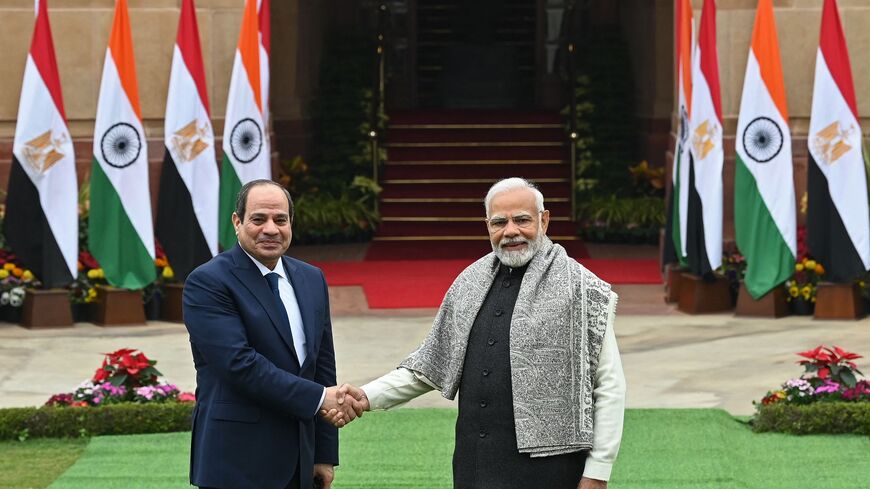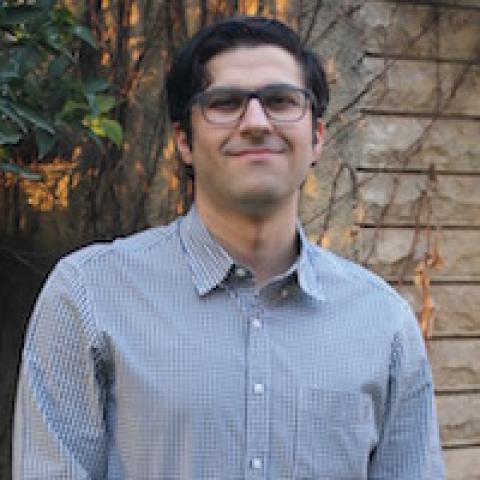Indian Prime Minister Narendra Modi is making a first state-visit to Egypt this weekend, a trip that could further strengthen trade, political and military ties between the two countries.
Modi is expected to arrive in Cairo for a two-day visit on Saturday, following his trip to the United States. He will meet his Egyptian counterpart Abdel Fattah al-Sisi, as well as other Egyptian government officials. Modi will also meet with members of the Indian diaspora in Egypt.
The trip follows Sisi’s visit to India in January. Egypt and India signed a strategic partnership during the visit related to political, defense, economic and other forms of cooperation. Sisi also met with Indian businesspeople.
Egypt-India relations have historically been friendly. Both countries were early leaders of the Non-Aligned Movement in the mid-20th century, seeking independence from both the United States and the Soviet Union during the Cold War.
Trade between the two nations increased to an all-time high of $7.26 billion during the fiscal year that ended in June of 2022, according to the Egyptian state-owned news outlet Al-Ahram. Egypt also turned to India for wheat when the Russian invasion of Ukraine disrupted Egypt’s wheat imports last year.
About 3,600 Indians live in Egypt. Around 50 Indian companies operate in Egypt and employ around 35,000 Egyptians. The Indian community in Egypt consists of businesspeople, IT specialists, students, entrepreneurs and others, according to the Indian embassy in Cairo.
Mohammed Soliman, a director at the Middle East Institute in Washington, DC, said that defense, maritime security, food security, trade, manufacturing and coordination on global issues are both countries’ priorities in their bilateral relations.
“As India's economic influence expands, Egypt holds the potential to become a vital trade and manufacturing gateway to Africa and the Mediterranean for Cairo,” Soliman told Al-Monitor. “Establishing Indian industrial zones in the Suez Canal region would facilitate this vision and enhance Egypt's standing in the global supply chain.”
Earlier this month, the Suez Canal Economic Zone signed a contract with India's Abdos Labtech to build a plastics factory. On Tuesday, Egypt's Orascom Industrial Parks signed a $120 million deal with the Indian packaging firm Flex Accipto to expand its plant within the zone, according to Al-Ahram.
Soliman added that India inviting Egypt to attend G20 meetings last December “symbolizes the positive trajectory” of their relations.
Soliman also noted the potential for defense cooperation between Egypt and India. In February, reports emerged that India was in talks to provide Egypt with its Tejas fighter aircraft.
“This milestone not only deepens India-Egypt military ties but also paves the way for Cairo to develop its own indigenous defense industry,” he said.
India’s relations with other Middle Eastern countries are improving as well, particularly with Saudi Arabia, the United Arab Emirates and Israel. Since Modi came to power in 2014, India’s interest in the Middle East has been defined by sustaining economic growth, providing for its huge population and securing fuel from the Gulf, according to a February trend report from Al-Monitor PRO.
India’s ties are strengthening in the region in spite of reports of bigotry toward Muslims. When an official from Modi’s Bharatiya Janata Party (BJP) criticized the prophet Muhammad and the Quran last year, the remarks were widely criticized in the Middle East, including by the leading Islamic learning center Al-Azhar in Egypt.
However, India's attitudes to political Islam may actually be similar to its Middle Eastern counterparts. Former Indian diplomat Talmiz Ahmad wrote in the Indian news outlet The Wire in February that India, along with Egypt, Saudi Arabia and the UAE, views “all expressions of political Islam as manifestations of ‘terrorism’ to be combatted with the full force of state power.”
Ahmad pointed to the joint statement issued by Egypt and India following Sisi’s trip, which noted a “zero tolerance” approach to “combating extremism and countering terrorism.”








